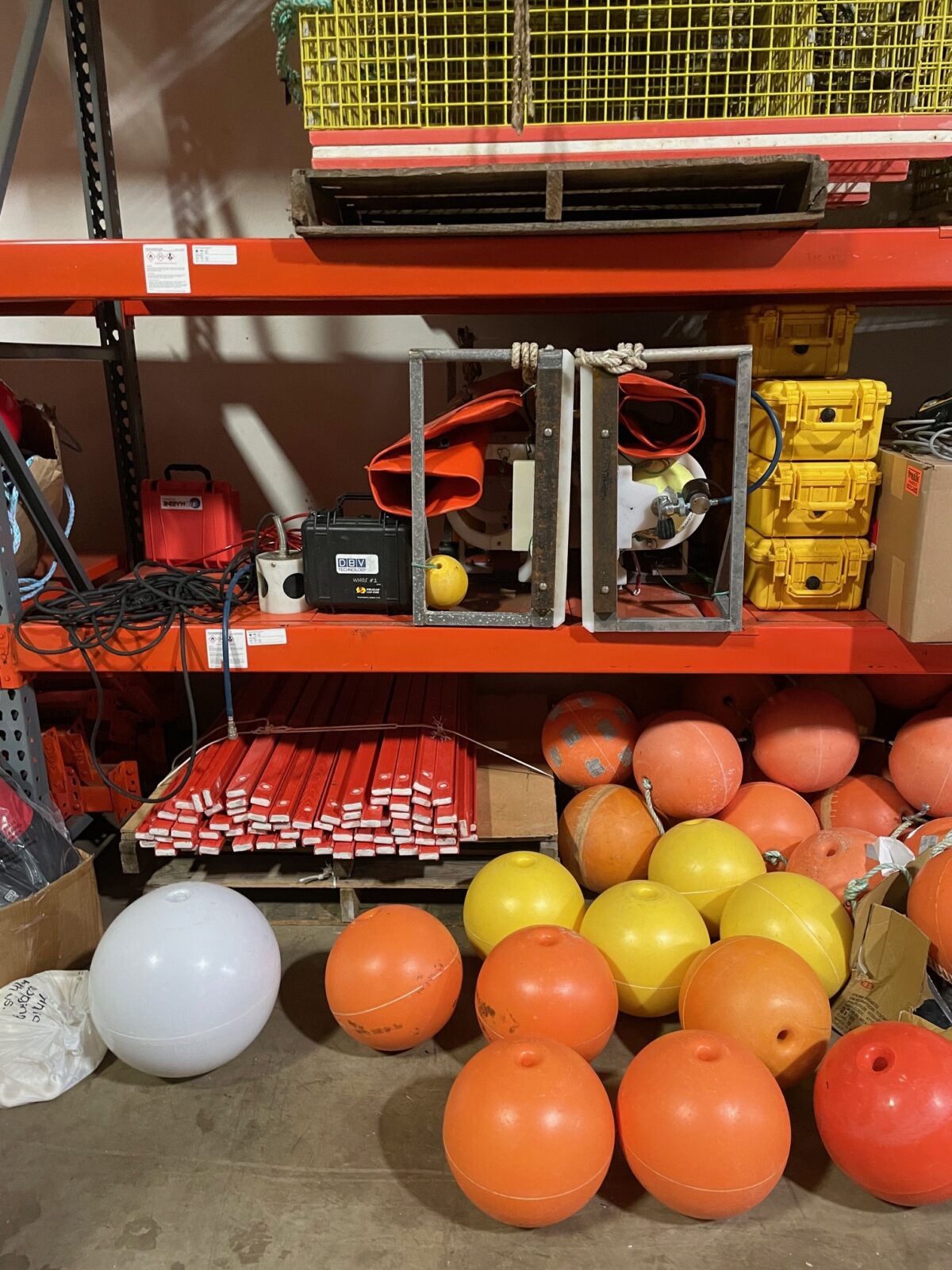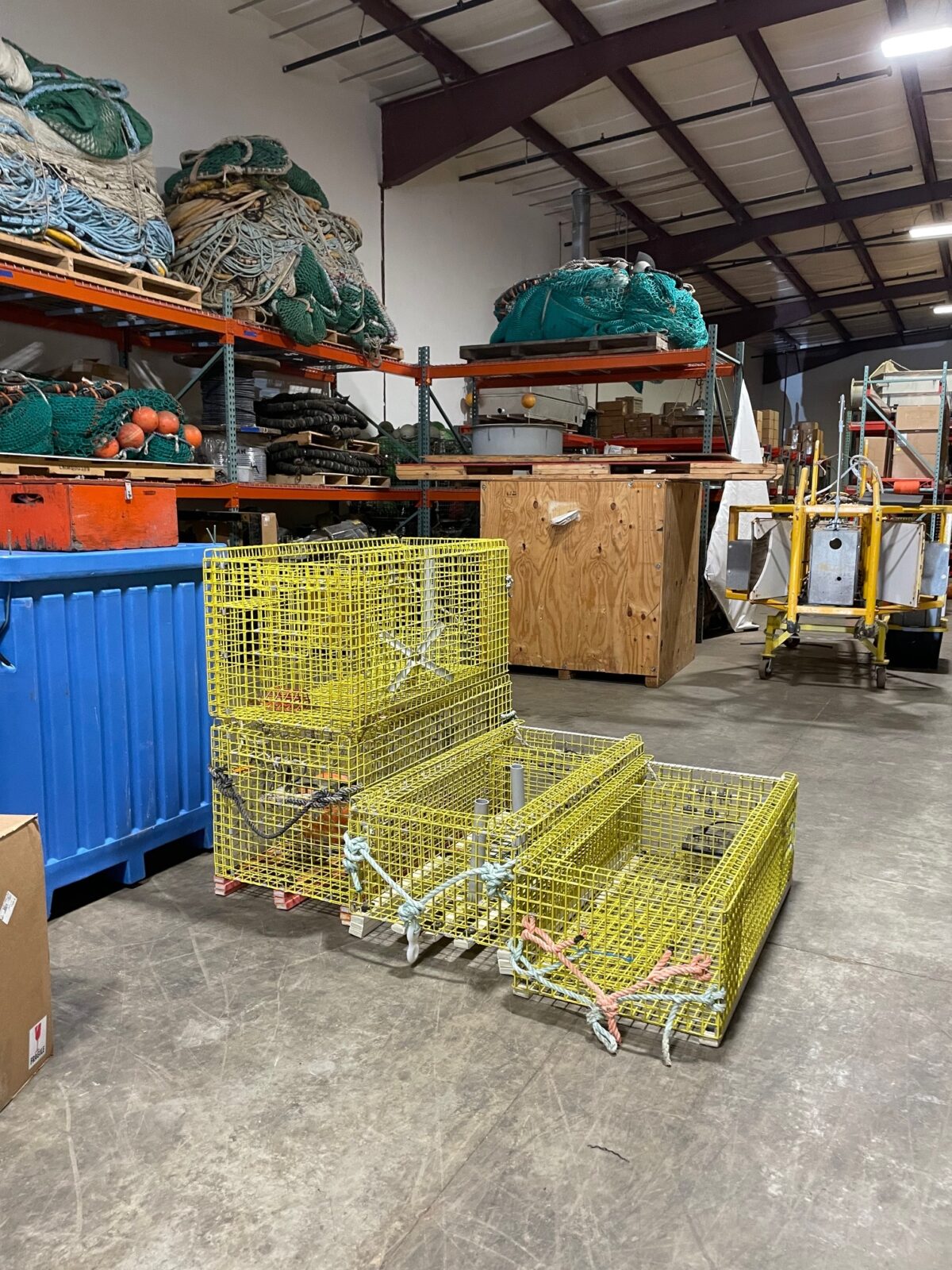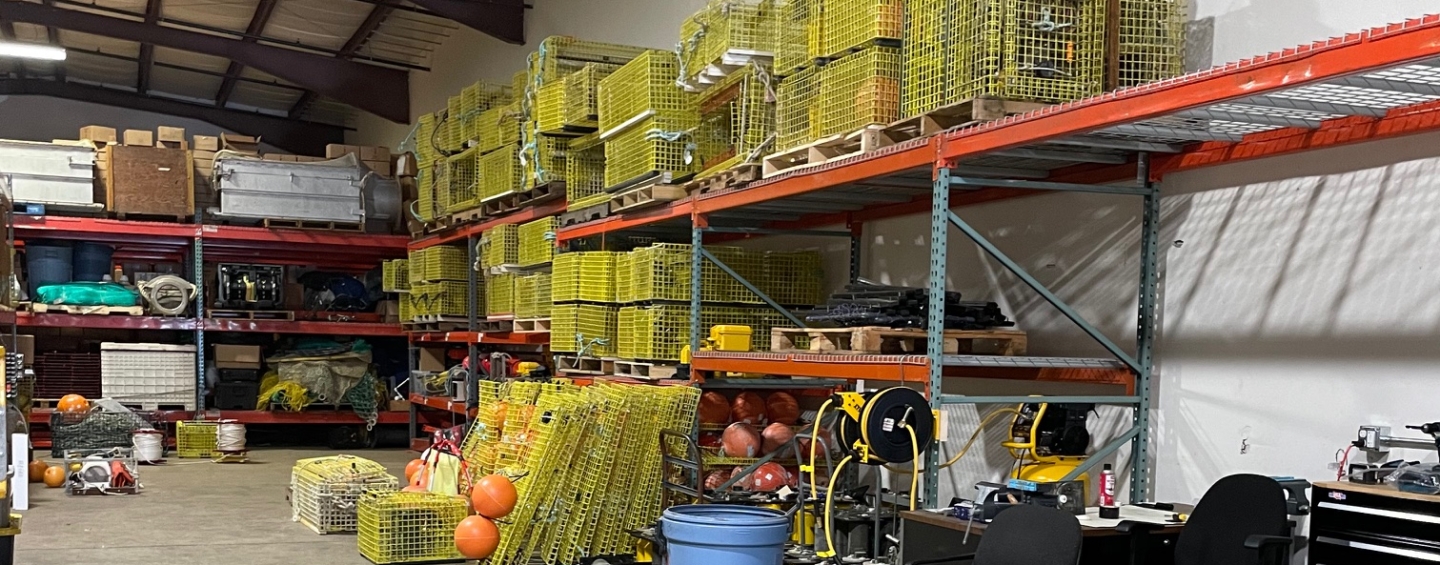I recently had the opportunity to tour the Northeast Fisheries Science Center (NEFSC) On-Demand Gear Library and learn more about the library’s activities and the challenges and opportunities it faces. The library is a great example of an innovative solution to address problems that affect fishers, wildlife, and local communities.
Along with representatives from NOAA Fisheries, the Conservation Law Foundation, Whale and Dolphin Conservation and private funders, I visited the Pocasset, Massachusetts, facility, guided by NOAA staffers Eric Matzen and Henry Miliken. They showed us the extensive collection of on-demand fishing gear that the library offers free of charge to fishers to test in actual fishing situations.
On-demand, or “ropeless” fishing uses innovative technology such as lift bags, pop-up buoys, and buoyant spools to replace traditional static vertical end line and surface buoys used in pot and trap fishing. This traditional gear can entangle endangered, threatened, and protected (ETP) marine species, such as the endangered North Atlantic right whale. There are fewer than 350 North Atlantic right whales left in the world, making them one of the most endangered whale species on the planet. Among these whales, 85% have scars from entanglement in fishing gear and ship strikes.
In exchange for borrowing the gear, fishers provide valuable information, data, and insight on the ease and usability of the gear and provide suggestions for gear modifications. The mission of the gear library is to reduce the risk to ETP species while providing tools to continue the sustainability of the fishing industry, particularly in areas where ETP species may be present now and in the future.
As of August, the Library offers nine different types of on-demand gear for fishers to trial, and over 500 on-demand systems. To date, approximately 54 fisheries vessels have tested the gear in five different US states, Massachusetts, Maine, Rhode Island, New Hampshire, and Maryland. These vessels have collectively accomplished 8,000 hauls with the gear and, as of August, have achieved an 88% success rate, up from 85% in 2023.
The Library is also working to provide solutions to some of the challenges in the use of on-demand gear. These include issues with electronic retrieval devices, gear conflict and marking, line snarls, visibility for retrieval at the surface, and mechanical issues such as battery life and small metal failures. Fishers are also providing the Library with insight into which gear may be best for select fisheries, based on need, habitat, weather, and sea conditions.
Eric and Henry noted the importance of continued collaboration with the fishers, including training, support, and open communication on future gear improvements. As the Library continues to grow, it hopes to expand testing and offer additional resources for fishers and other stakeholders.
The Tour also provided an opportunity for all parties to discuss challenges that may result from proposed US Federal laws regarding fishing efforts and the protection of ETP species, particularly in areas that may be closed to fishing when vulnerable species, such as North Atlantic right whales, are present.
Gatherings such as this spotlight the importance of collaboration between government, non-governmental organizations (NGOs) such as SFP, and funders. By bringing together stakeholders from various backgrounds to collaborate on addressing shared problems, we can achieve solutions that consider the interests and concerns of all groups, to ensure that we can protect the marine environment as both a resource for human use and an important ecosystem and habitat for marine wildlife.
Having been involved in North Atlantic right whale conservation for many years, I clearly remember the very first discussions about the possibility of “whale-safe” fishing technology like on-demand fishing. Many believed it was impossible to achieve. Therefore, to witness the developing success of programs like the NEFSC Lending Gear Library gives me hope for a sustainable marine ecosystem for people, whales, and other marine species.



